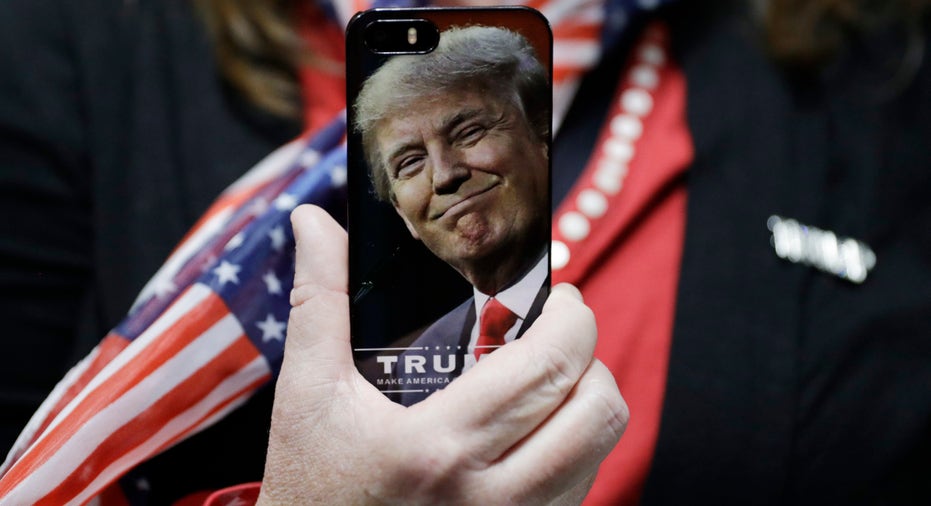Trump's Tweets Can Rattle an Entire Industry

President-elect Donald Trump changed the game of politics and now he’s strong arming the world’s biggest companies with simple, yet threatening, tweets.
Since being elected the 45th President of the United States, Trump has confronted at least four major Fortune 500 companies in acerbic terms for their plans to outsource jobs overseas and for what he sees as out-of-control costs for government contracts.
His sharp-tongued rebukes have many CEOs and corporate boards shaking in their boots. Ford (NYSE:F), Boeing (NYSE:BA), and General Motors (NYSE:GM) are among the companies that have seen their stocks spin into free fall, prompting management to re-examine multimillion-dollar business plans.
“Trump either strategically – because he knows what he’s doing or perhaps because he just stumbled onto this – has unleashed a very powerful tool,” said Paul Tiffany, a senior lecturer at the University of California Berkeley Haas School of Business. “And it puts the business folks on the back of their feet because now they have to respond to do something because Trump’s thrown it out there, it’s all over the media and online etc.”
Toyota Motor said will build a new plant in Baja, Mexico, to build Corolla cars for U.S. NO WAY! Build plant in U.S. or pay big border tax.
— Donald J. Trump (@realDonaldTrump) January 5, 2017
General Motors is sending Mexican made model of Chevy Cruze to U.S. car dealers-tax free across border. Make in U.S.A.or pay big border tax!
— Donald J. Trump (@realDonaldTrump) January 3, 2017
Fiat Chrysler (NYSE:FCAU) and Ford are among the automotive companies that have announced plans to expand their operations in the U.S. after Trump has repeatedly scolded the industry for sending jobs overseas. After the companies made those announcements, Trump thanked them on Twitter.
It's finally happening - Fiat Chrysler just announced plans to invest $1BILLION in Michigan and Ohio plants, adding 2000 jobs. This after...
— Donald J. Trump (@realDonaldTrump) January 9, 2017
Ford said last week that it will expand in Michigan and U.S. instead of building a BILLION dollar plant in Mexico. Thank you Ford & Fiat C!
— Donald J. Trump (@realDonaldTrump) January 9, 2017
Officials from the Trump administration did not immediately return an email from FOXBusiness.com seeking comment.
Toyota (NYSE:TM), which incurred Trump’s wrath last Thursday because of plans to build a new facility in Mexico, experience a sudden jolt in its stock after Trump tweeted his displeasure with the decision.
The Japanese car company was forced to respond, saying that U.S. production would not be impacted by the new plant in Mexico.
“Toyota looks forward to collaborating with the Trump Administration to serve in the best interests of consumers and the automotive industry,” the company said in a statement Thursday.
Decades before Twitter, President John F. Kennedy used news conferences, statements and the power of the presidency to sway leaders in the U.S. steel industry to re-think a plan to raise prices. Back then it was called jawboning, a term used to describe how presidents exercise the power of their office to persuade business leaders.
Now Trump is taking on industries in 140 characters, or less.
“Trump certainly seems to have unleashed a powerful weapon in terms of tweeting,” Tiffany said. “It absolves him from having to do detail. And this is my own opinion, based on observing him, he doesn’t like detail. He can simply throw out a headline, it gets a lot of attention. He seems to like that. And then the ball is in the court of the industry.”
Aparna Mathur, a resident scholar on economic policy at the American Enterprise Institute, said she believes Trump will change his communication methods once he assumes office. She said he will recognize the limitations of governing from the White House and focus more on policy, instead.
“Hopefully, this aspect of his presidency will sort of become more general [and] more about policy overtime,” Mathur said. “For now he seems to be somewhat effective. Every time he goes after a company, they sort of backtrack.”
With billions of dollars at stake, both experts agree Trump has been successful so far in convincing companies to change their plans. But Mathur says the President-elect needs to focus more on governing once he’s in office and let businesses make their own decisions.
“You don’t want to feel threatened as a company,” Mathur warned “that if you decide to relocate in the best interests of the company and the best interest of your shareholders that the president of your country is going to come after you.”



















